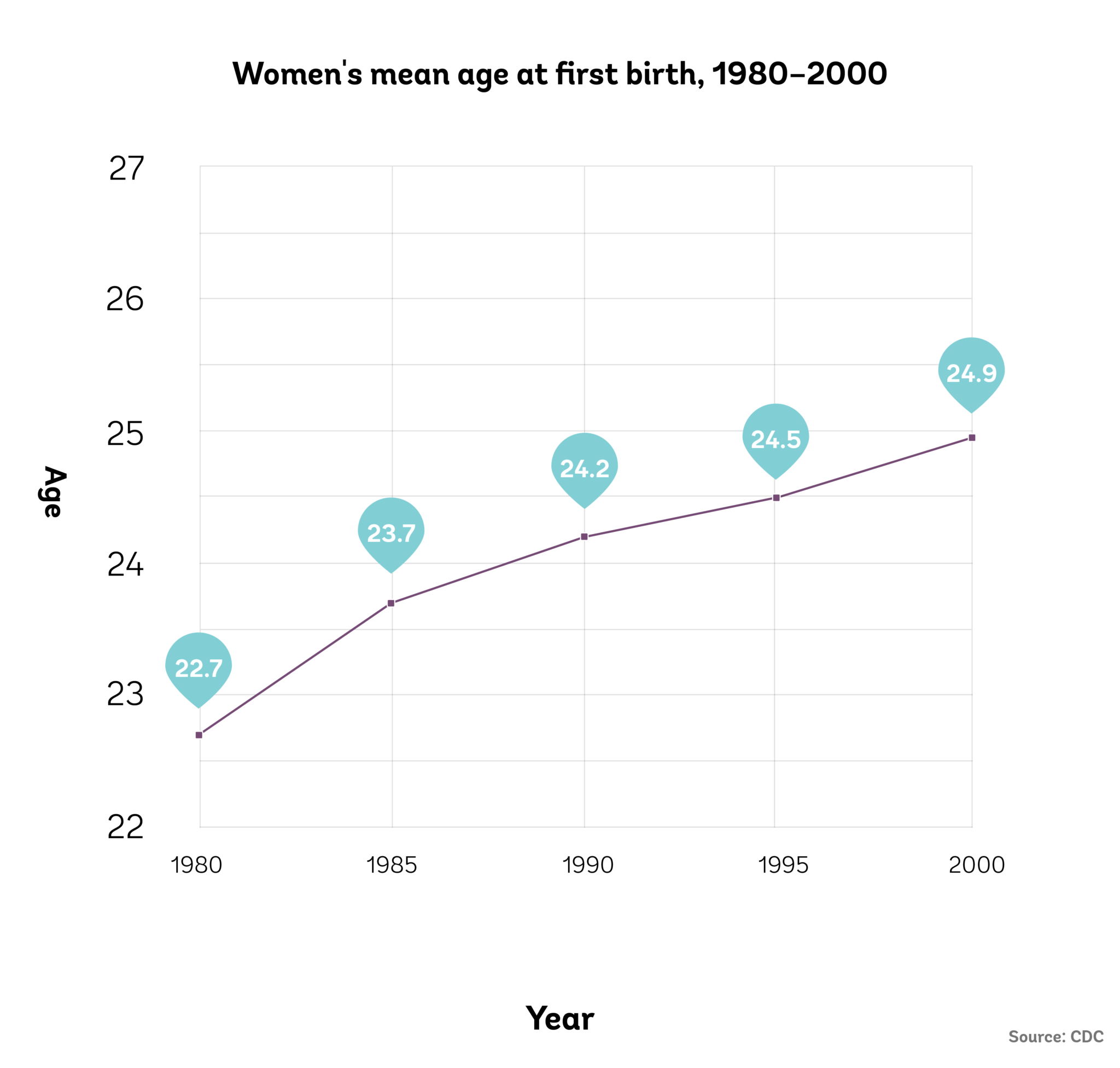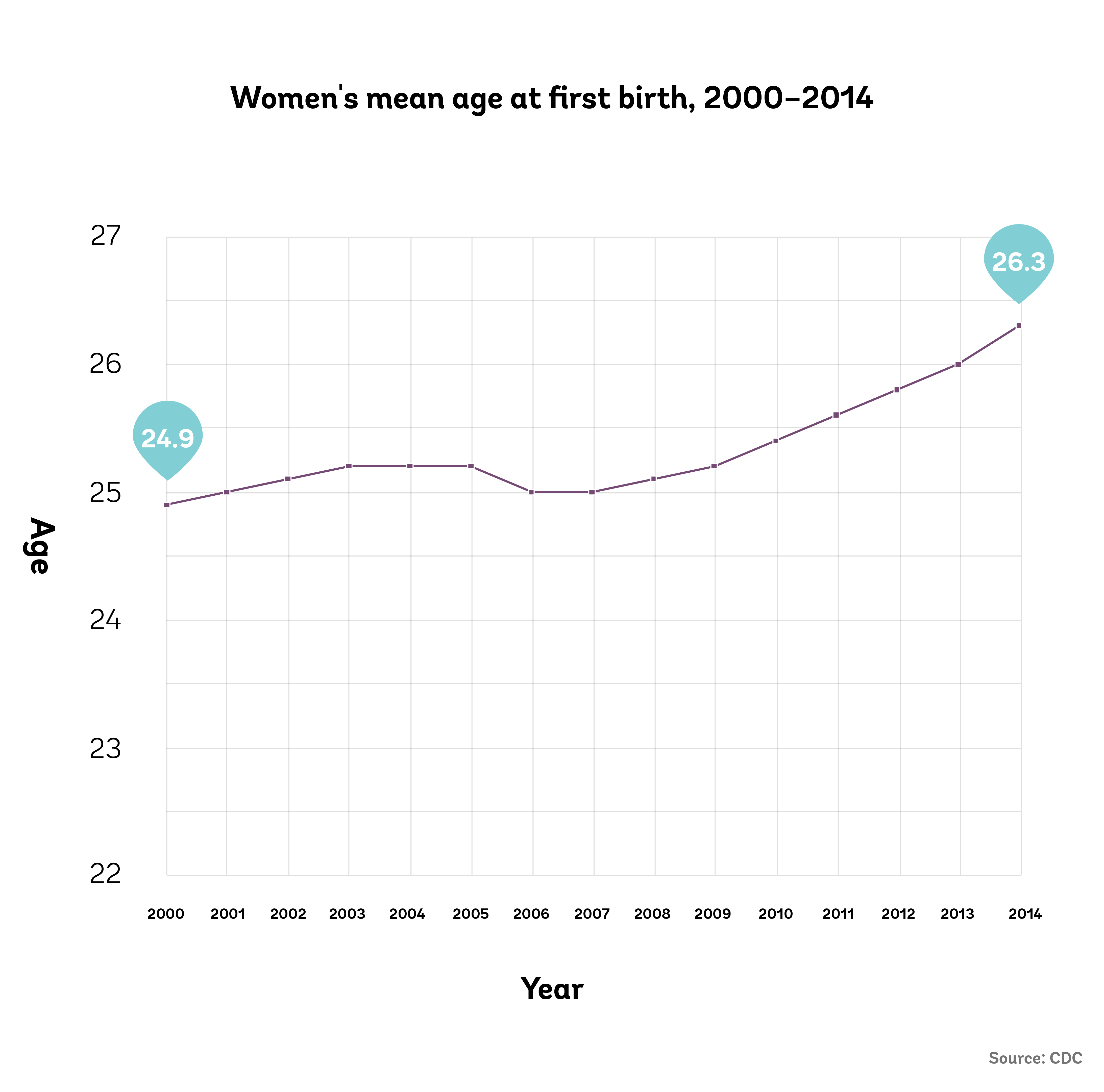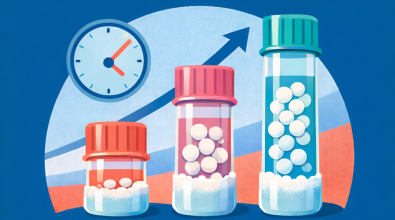Women are waiting longer than ever to have their first child, says the CDC
In a brief released early this year, the CDC confirms what doctors, the media, and the general public have noted: the average age of women at the birth of their first child climbed to its highest value ever in 2014, 26.3 years old.
Contact Us to Chat with a Fertility Advisor
As you can see in the charts below, this increase is part of an overall trend in rising maternal age. Since 1980, the average age at first birth has increased 3.6 years. There was a plateau from 2001–2008 when the average stabilized around 25 years, but after 2009, it began increasing again, rising from 25.2 to 26.3 in just 5 years. (See all the figures from the CDC here.)


A few key takeaways from the study: there are fewer teen moms than ever before, thanks to better sex education and access to contraceptives. Moms under 18 have dropped from 23% of the pool in 2000 to just 13.4% in 2014. (Yes! That is the kind of news we like to hear.) But the figure that’s pulling the average age up can be found on the other end: the percentage of moms having their first child later (as in, after age 30) has gone up 26% since 2000.
If there’s one question the CDC’s brief doesn’t answer, it’s why: what’s causing the uptick in age at first birth? It’s probably a few things, says a report from CBS Minnesota: better access to contraceptives, more professional, educational, and cultural options for women, and the economic downturn in 2008 that encouraged women to hold off on childbearing until their financial situations were more stable. Turns out, maternal age can tell us a lot about our cultural environment.
But as the CDC’s brief states, maternal age is more than just culturally interesting. The average age at which a woman has her first child can predict the total number of births she has in her lifetime, the outcome of those births (including multiples and birth defects), and even the composition and growth of the country’s population. It also helps us understand where to devote resources in education and healthcare options.
Higher maternal age brings with it increased need for advanced reproductive technology—fertility treatments like medication, intrauterine insemination, and in vitro fertilization—as well as a higher risk of birth defects, multiples, and miscarriage. If we’ve said it once, we’ve said it a thousand times: a woman’s age has a serious effect the health of her eggs and her fertility, and the only way to mitigate that effect is to freeze your eggs when you’re young.
But, as author Elizabeth Gregory explores in her 2012 book Ready: Why Women Are Embracing the New Later Motherhood, higher maternal age can also mean better educated, more financially stable mothers that are generally more prepared to tackle the many challenges of parenthood. Such is the conundrum of modern womanhood—and the reason that affordable, accessible egg freezing is opening up a whole new world of exciting options for women.
What do you think about the CDC’s report? Tell us on Twitter!




